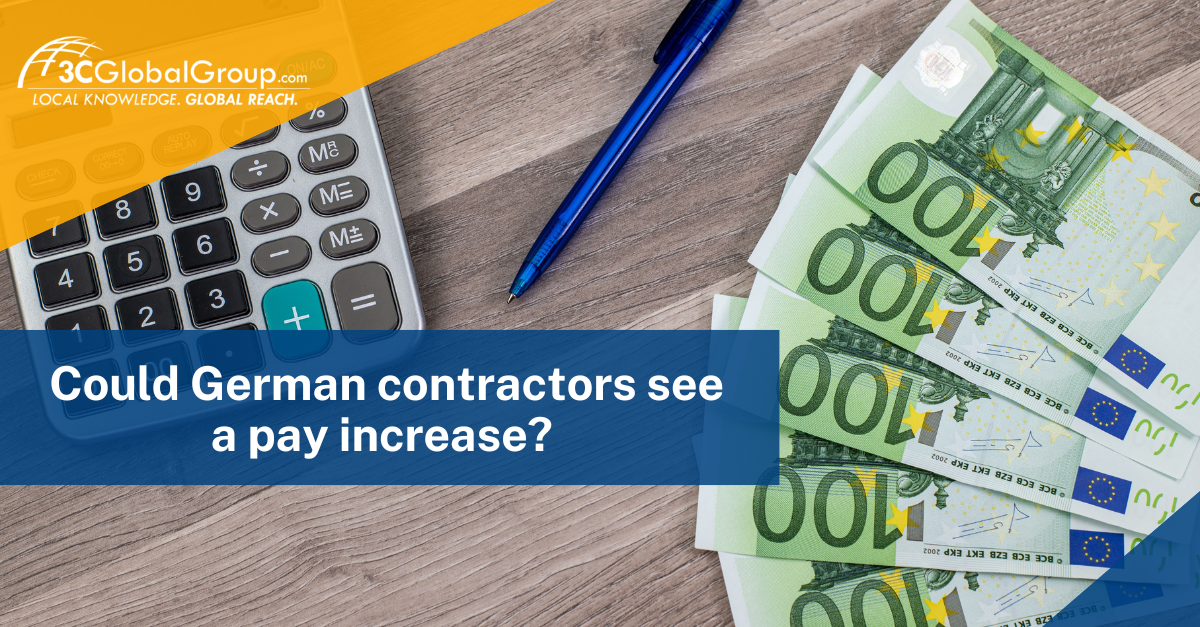
With salaries and wages among full-time employees in Germany increasing in 2023 from the previous year, the question is whether contractors and freelancers would see a similar increase reflected in their pay.
Recent data from Germany's Federal Employment Agency (Bundesagentur für Arbeit) found that wages for full-time employees in Germany increased in the 2023 financial year. In a recent press release, Germany's Federal Employment Agency highlighted a recent increase in the country's salaries and wages for full-time employees. The piece also looks at other aspects, such as regional pay differences, the gender pay gap, how one's age impacts one's wages and how those with vocational qualifications measure up salary-wise to those without. We will examine the key findings outlined in this release and whether contractors and freelance professionals could expect such an increase.
What has led to this increase?
The Federal Employment Agency attributed this substantial increase to higher collective wage agreements in a press release. In 2023, the typical monthly wage for full-time employees in Germany covered by social security contributions was €3,796, an increase of 150 euros from 2022.
Key findings:
In addition to the overall increase in the German monthly wage, Several key findings were highlighted in the press release from Bundesagentur für Arbeit, including:
- Gender pay gap: The pay disparity between women and their male colleagues remains prevalent in Germany. In its press release, the Federal Employment Agency Statistics revealed that men had a median wage of slightly over €3,930, while women earned just over €3,563. This disparity resulted in a gender pay gap of €367, which was €2 higher than in 2022. Nevertheless, the agency highlighted that in 2019, the pay gap between men and women was €443. Despite the decrease in the pay disparity since 2019, the gender pay gap remains a significant issue in Germany.
- Regional pay differences: The piece highlighted the difference in wages amongst those living in different regions. Hamburg's € 4,304 median wage was followed by Baden-Wuerttemberg's € 4,134 and Hesse's €4,080. On the other hand, Mecklenburg-Western Pomerania (€3,098), Thuringia (€3,109), and Saxony-Anhalt (€3,152) reported the lowest wages among the federal states.
- Pay differences between those with a vocational qualification and those without: According to Germany's Federal Employment Agency's findings, employees without a vocational qualification earned €2,831, while those with recognized vocational qualifications earned €3,658. Additionally, individuals with academic degrees had a median wage of €5,688.
- How age affects one's wage: The piece also indicated a correlation between age and wages, with younger workers earning less than their older colleagues. The data concluded that workers under 25 earned €2,897, those aged 25 to 55 earned €3,860, and those 55 and above earned €3,954. However, it is unclear if these findings take into account the candidates' industry experience.
Could contractor rates also be on the rise?
The recent findings have raised questions regarding whether the same trend can be observed amongst contracting and freelance professionals. As the publication attributes the wage rise amongst full-time workers to collective wage agreements, contractors and freelancers can see an increase in their income if they effectively negotiate their rate agreements. It is imperative to consider industry pay trends and changes and the rate one can earn for one's region, qualifications, and experience. By monitoring these trends, contractors and freelance professionals can be informed, set their rates, and negotiate accordingly.
In conclusion:
As we have discussed, salaries and wages among full-time employees in Germany increased from the previous year in 2023, posing the question of whether contractors and freelancers would see a similar increase reflected in their pay. An income increase could be possible for those who negotiate their pay agreements effectively. Other factors such as age, experience, region, and additional qualifications can affect one's income. Despite the wage improvement, the gender pay gap remains prevalent in Germany.
At 3C Global, we work with freelance and contracting professionals across multiple sectors. Our knowledgeable team is on hand to assist our clients with whatever their international query entails. Whether it is employment structures, invoicing, insurance, immigration queries or more, our team is on hand to help.
Please do not hesitate to contact us today.


